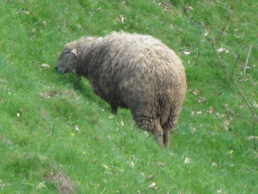The question whether EU legislation on live animal transport should apply also when animals are sent outside the EU territory has remained unanswered for many years. Common sense would suggest that all businesses based in the EU should comply with its laws even when part of their activity – in this case part of the journey – happens to be in third countries. However, the situation has been far from clear over the years, because different local and national authorities have come up with inconsistent answers.
In order to receive a definitive answer, the Administrative Court of Bavaria, Germany, referred a question to the Court of Justice of the European Union. It asked whether the requirements pertaining to the journey log and the powers conferred on the competent authority of the place of departure enabling it to require changes in certain circumstances also apply, in the case of transport between Member States and third countries, to those stages of the journey taking place outside the EU.
I am pleased to report that at the end of April 2015 the EU Court of Justice answered that question in the affirmative, thus potentially sparing millions of animals huge – and avoidable – suffering.
The issue of live transport remains open, however, and the best answer would be to avoid long-distance journeys for animals destined for slaughter. Slaughtering them near the place of rearing and transporting their meat – as already happens for most of the meat trade – would avoid a great deal of animal suffering. It would also decrease the number of lorries on EU roads, thus benefiting the environment and decreasing the need for checks on animal transports, which drain the resources of road police in most Member States.
The establishment of an 8-hour maximum journey limit from farm to slaughterhouse remains the best solution available to lawmakers in Europe. Unfortunately, this has seemed a remote possibility since 2013, when the German organisation Animals’ Angels abruptly decided to terminate the 8hours campaign, after supporting it for two years. They did so at a time when a massive mobilisation of citizens and Members of the European Parliament (MEPs) had been achieved, when several EU Member States officially supported the proposal, and when the doors of the EU Commission had begun to open.
Fortunately, institutions can sometimes help animals more than some animal welfare NGOs, and this ruling of the Court of Justice of the European Union could lead to a great improvement in the conditions in which animals are transported outside – and indeed inside – Europe.
You can find the full text of the judgement on the website of the Court of Justice of the European Union.
You can read the press release of the Court of Justice that summarises the content of the judgement by clicking here.
Free subscription to the AnimalWelfareAndTrade Newsletter: click here
Follow AnimalWelfareAndTrade on Twitter: click here
Follow AnimalWelfareAndTrade on Facebook: click here


